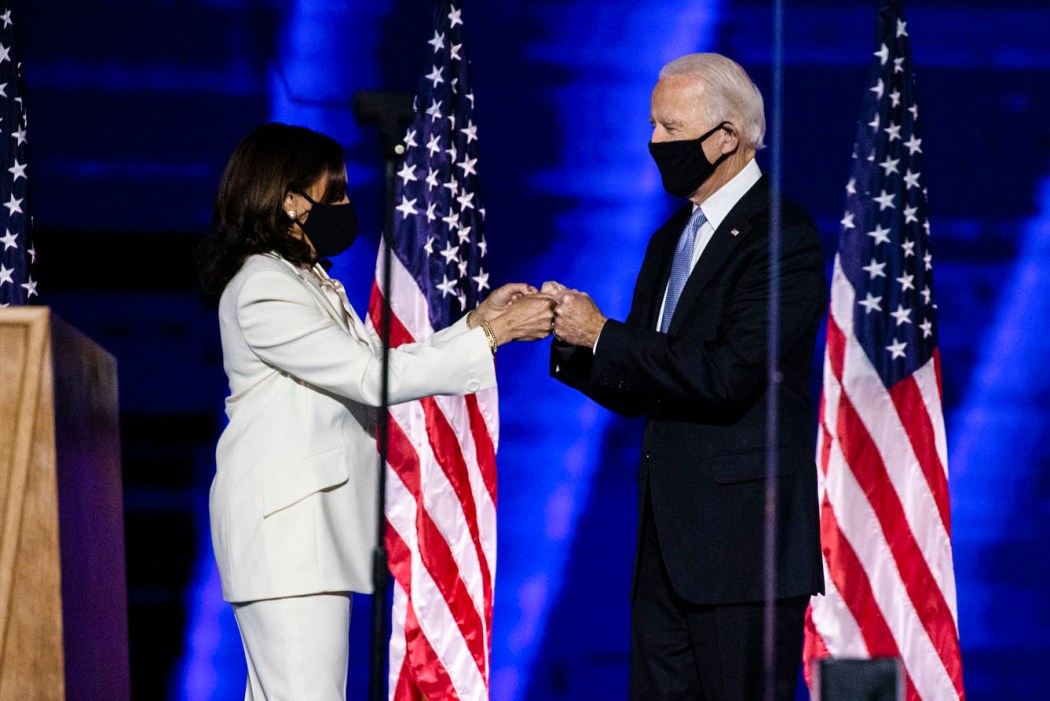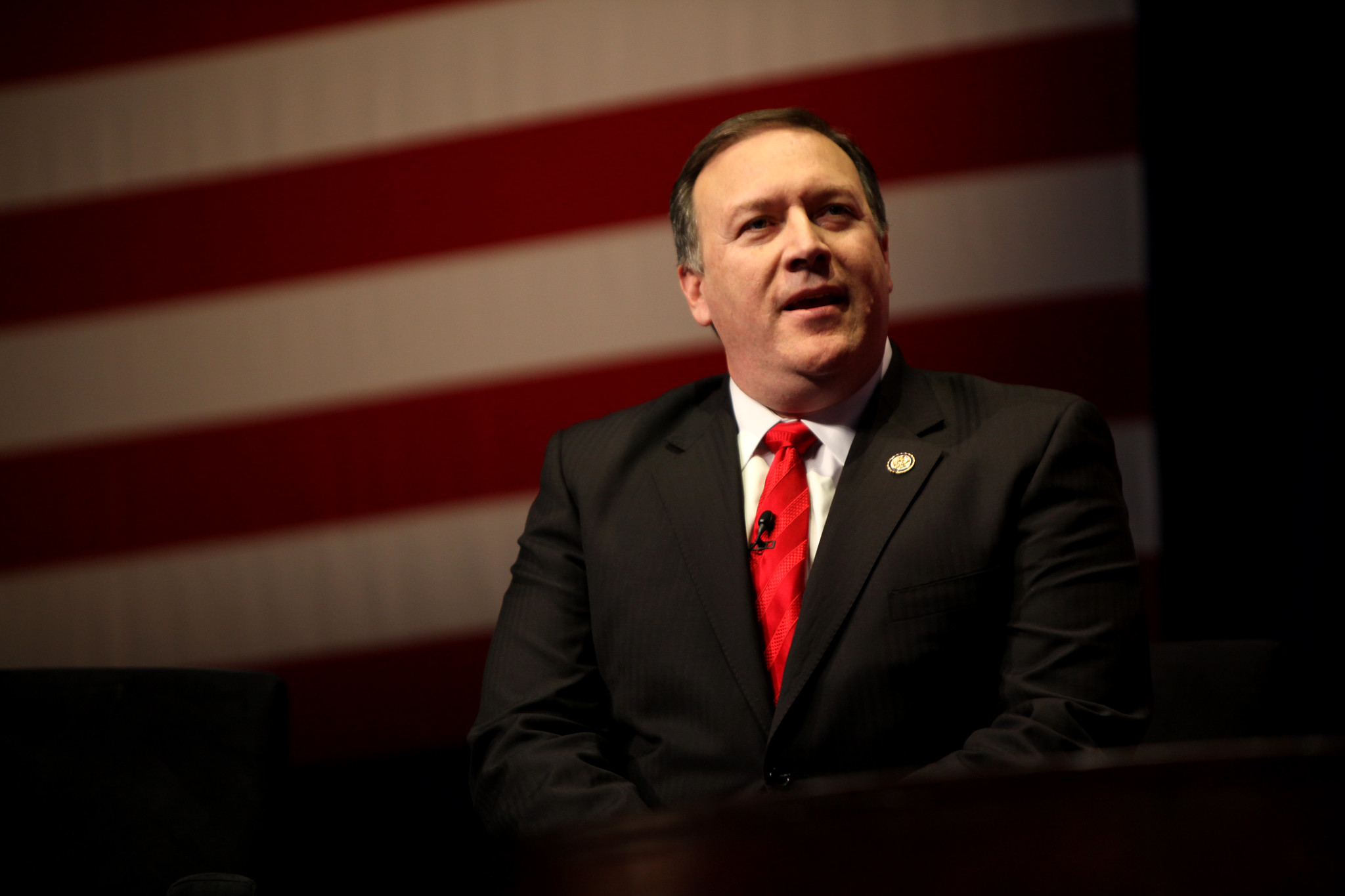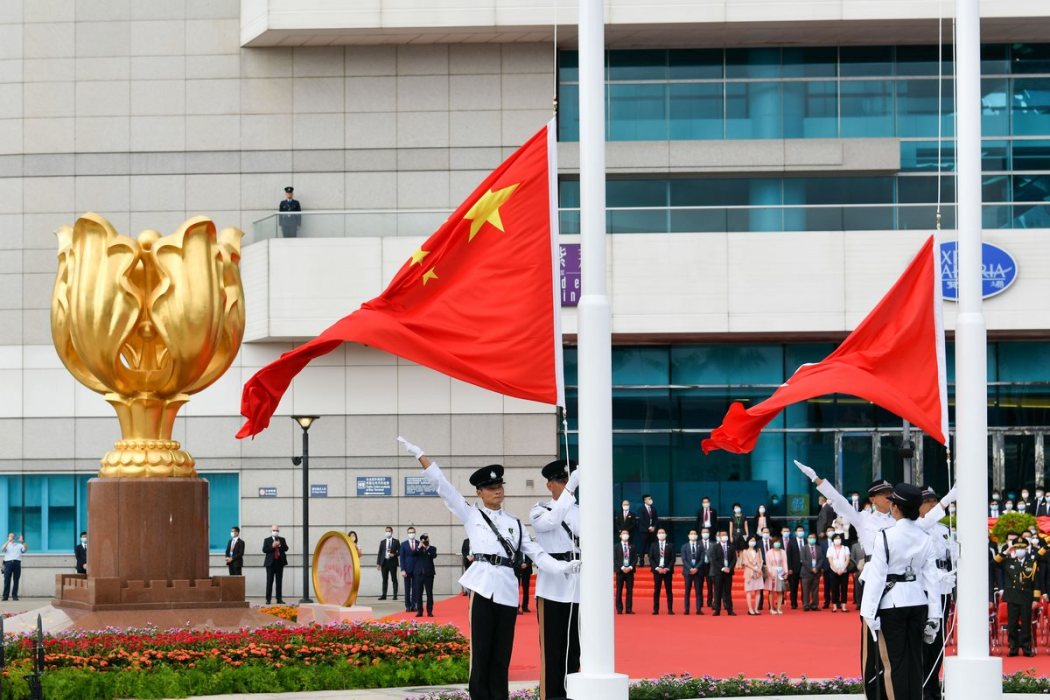We got there eventually. Joe Biden will be the next president of the United States. Despite a nail-biting election night, last Saturday Pennsylvania put the former-Vice President into the White House.
Of course, by Friday we had figured that Biden would, in all likelihood, be the 46th President. Yet in order to avoid the ire of the tantrum throwing wannabe-tyrant currently occupying the Oval Office, the networks, the Democrats, and leaders all around the free world waited patiently. Not that this stopped the outgoing President, Donald Trump, from screaming foul play.

“Outgoing” – what a welcome prefix to ”President Donald Trump.” Although many of us will have to wait until this becomes “former President” before we can sleep easy. I say many because outside of America there is a bipartisan anti-Trump consensus. Even many Conservative parliamentarians here in Britain would have enthusiastically voted for the Biden-Harris ticket (what that says about the old Tory Party, or rather the US Democrats, I’ll leave to you).
Yet in parts of Asia, notably those on the frontlines of Chinese Communist Party aggression, it seems many people wanted Trump to be re-elected. As the Hong Kong Free Press has highlighted, some Hongkongers were enthusiastically rooting for The Donald. And if the election were up to the Taiwanese then Trump would have won by a decisive twelve points, that is, if polls are to be believed (which after last Tuesday, and 2016, they clearly are not). This made Taiwan, where a progressive president, Tsai Ing-wen, resoundingly won re-election in January, the only place in the Asia-Pacific to favour Trump over Biden.

For those in Hong Kong and Taiwan who believe that Trump was your only hope – there’s no need to worry. I’m not going to argue that in all aspects of US-China policy the Biden administration will be better or that the President-elect’s attitude towards the People’s Republic is great. It’s not but it is not terrible either. Nor I will deny the genuinely positive steps the Trump Administration has taken to challenge Beijing.
Rather, I merely aim to reassure the doubters and gently suggest a few ways in which Biden may be able to challenge China even more effectively. This includes efforts to build alliances, fight for influence in international organisations and provide moral leadership. Trump simply could not fight on any of these fronts and at times appeared unwilling to even try.
Trump was reluctant to lead the free world. He came to the presidency on the back of putting “America First”. With no foreign policy experience he believed he could import the deal-making techniques he had learnt in the business world into global politics. The result was the pursuit of bilateral transactional deals for the benefit of the US, and the US alone.
Biden’s pre-presidency foreign policy credentials make 2016 Trump look more like the locally elected dogcatcher, let alone a first term congressman. In fact, you would have to go back to George H.W. Bush to find a President-elect with the foreign policy chops of Biden. Years chairing the Senate Foreign Relations Committee and leading on international policy as Barack Obama’s Vice-President give him a clear understanding of America’s global challenges.

Of course this experience has its drawbacks. It is the perceived softness towards authoritarian regimes during the Obama administration for which many in Hong Kong and Taiwan criticise the President-elect. This criticism is justified. However, a President does not always act as he did when second in line. Remember Richard Nixon, that rabid red-bashing Veep who went on to become the architect of detente? Moreover, times have changed. Now both Democrats and Republican, and an array of world leaders from the left to the right, have woken up to the China threat. Across the board analysts, including both American and Chinese ones, agree that tensions between Washington and Beijing are unlikely to ease significantly whoever wins the election.
Like Harry Truman and later Democratic presidents, Joe Biden believes in an American-led world order which embodies the country’s liberal democratic values. Maintaining this means an active US presence in every corner of the globe and at all levels. The suggestion that Joe Biden is some sort of “dove” is, please excuse the expression, for the birds. You would just have to look at his record on Bosnia or Kosovo during the 1990s to see otherwise. On both occasions he was not afraid to advocate the deployment of military force for a righteous cause.
What Democratic administrations tend to value more than Republican ones is multilateralism. Simply put, that means working with other countries. Of course, this is no virtue in itself especially if consensus means inaction. Unilateralism is sometimes necessary. Yet for those of us hoping to see China contained, and pushed back, a little more unity among the nations of the free world might just be exactly what we need.
Biden has promised to forge alliances with like-minded liberal democracies to constrain China’s superpower ambitions. He has vowed to convene a “Summit for Democracy” in his first year. Biden insiders, echoing the British government’s idea of a Democratic 10 (D10), have even spoken of forming a league of democracies. Like plans for the D10, this network would address both military and cyber threats as well as emerging problems such as election interference which are plaguing the free world.
No such initiative was ever articulated by Donald Trump, who spent his presidency telling allies to cough up the cash for their defence. Nor could it have been realised. Not only is Biden a leader who wants to lead other countries, he unlike Trump is a leader whom other countries want to be led by.
American leadership has also been lacking in international institutions. In a recent piece for The Atlantic the writer Anne Applebaum highlighted a number of policy areas at the United Nations in which Beijing was taking the lead. Through big money investments and slick political manoeuvring the Chinese Communist Party has installed its preferred candidates in key positions in a number of agencies. Once in place they can, although they are not supposed to, advance China’s own interests and promote CCP initiatives like the Belt and Road initiative.
Traditionally, Republicans have been dismissive of the UN. The conservative commentator William F. Buckley Jr. once wrote that it embodied “the most concentrated assault on moral reality in the history of free institutions.” Others on the right have said much worse.

They may have a point, but tough talk does not solve the problem. Today the world is reaping the consequences of having the World Health Organisation led by one of Xi Jinping’s stooges. In the UN Human Rights Council China is pushing proposal after proposal with the aim of undermining the concept of, and monitoring of, human rights. These changes will not just let China off the hook but a whole host of other human rights abusers as well. In response to these Chinese gains at the WHO and the rights council, Donald Trump’s instinct has been to defund and walk away. Biden has promised to get stuck in and fight back.
As well as pledging to rejoin the UNHRC, we can expect more talk about human rights from the Office of the President over the next four years. This moral leadership is essential in uniting the free world. Over the previous four years it has been noticeably absent. Not only has Trump been silent on such matters, if his former National Security Advisor John Bolton is to be believed he gave Xi Jinping his backing for camps in Xinjiang. Not to mention a promise to remain quiet as the CCP clamped down on Hong Kong.
This is not to say the Trump Administration has not spoken out on human rights. Senior figures, from Vice President Mike Pence to Secretary of State Mike Pompeo, have repeatedly raised concerns about repression in Tibet, Hong Kong and Xinjiang. The administration has made its hostility to communist party rule abundantly clear. While the President is unable to make such distinctions, they have emphasised that it is China’s government, not its people, which America opposes. They have even expressed hope that the Chinese people will one day be able to realise their democratic aspirations.

The extent to which these aspirations exist is a separate question. What is a given is that the election of President Trump and his record of governing are no advertisement for democracy. America should be an example to the world. A “city on a hill”, as so many past presidents have been fond of saying, which others can look to as a place of sanctuary or as a model to emulate. Restoring this idea begins by renewing democracy at home with a president who accepts the outcome of elections and the checks and balances which come with public office.
Biden recognises, unlike his soon-to-be predecessor, that confronting China is not merely a fight for global hegemony but a contest between fundamentally opposing values. As he recently wrote in Foreign Affairs:
“The triumph of democracy and liberalism over fascism and autocracy created the free world. But this contest does not just define our past. It will define our future, as well.”

So when it comes to January 20th and Biden sets foot in the Oval Office as Commander-in-Chief there is nothing to fear. He will continue confronting China’s global ambitions, and with shrewd diplomacy may do so more effectively. To steal (and misquote) the words of the former British Labour Party leader Neil Kinnock, something Mr Biden would know a thing or two about, don’t worry: “We’re all right!”
Support HKFP | Policies & Ethics | Error/typo? | Contact Us | Newsletter | Transparency & Annual Report | Apps
| HKFP is an impartial platform & does not necessarily share the views of opinion writers or advertisers. HKFP presents a diversity of views & regularly invites figures across the political spectrum to write for us. Press freedom is guaranteed under the Basic Law, security law, Bill of Rights and Chinese constitution. Opinion pieces aim to point out errors or defects in the government, law or policies, or aim to suggest ideas or alterations via legal means without an intention of hatred, discontent or hostility against the authorities or other communities. |
Help safeguard press freedom & keep HKFP free for all readers by supporting our team

More HKFP OPINION:
HKFP has an impartial stance, transparent funding, and balanced coverage guided by an Ethics Code and Corrections Policy.
Support press freedom & help us surpass 1,000 monthly Patrons: 100% independent, governed by an ethics code & not-for-profit.










